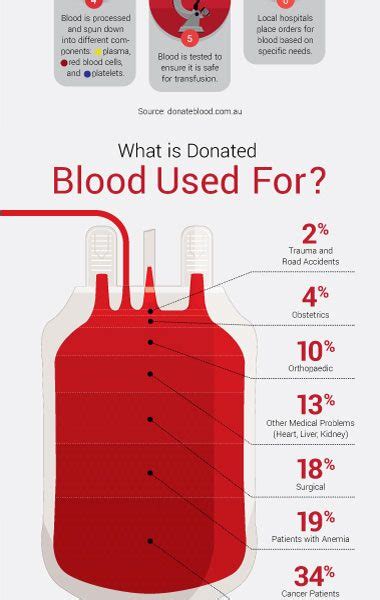Introduction

When your boss expresses gratitude for your efforts, it’s crucial to respond professionally and appropriately. A well-crafted response not only acknowledges the recognition but also strengthens your relationship and sets the tone for future interactions. This guide explores the various ways to respond when your boss says “thank you,” showcasing best practices, common mistakes to avoid, and tips for maximizing the impact of your response.
1. Express Sincere Appreciation
- “Thank you, I appreciate you taking the time to acknowledge my work.”
- “I’m delighted that you’re pleased with the results. Your recognition means a great deal to me.”
- “It’s a pleasure to serve the team, and I’m glad that my contributions have been valued.”
2. Highlight the Team Effort
- “I want to thank my teammates as well. Their collaboration and support made this project a success.”
- “I’m grateful for the guidance and mentorship I’ve received from our team.”
- “This recognition is a reflection of the hard work and dedication of the entire team.”
3. Reiterate Your Commitment
- “I’m committed to continuing to meet and exceed expectations in my role.”
- “I’m eager to take on new challenges and contribute to the team’s success in the future.”
- “Your support and belief in my abilities motivate me to perform at my best.”
4. Offer Specific Details
- “The feedback you provided on my presentation helped me improve my communication skills significantly.”
- “I’ve implemented the new software changes you suggested, and they’ve already streamlined our workflow.”
- “I’m particularly proud of the project’s positive impact on our customers.”
5. Seek Clarity or Guidance
- “Thank you for your feedback. Can you provide any additional details on how I can improve my performance?”
- “I’m eager to learn more about your vision for the team. Can we schedule a time to discuss this further?”
- “I’d appreciate your guidance on how to best approach the upcoming project.”
Common Mistakes to Avoid
- Ignoring the gratitude: Failing to respond appropriately can convey disinterest or ingratitude.
- Minimizing your accomplishments: Downplaying your contributions can undermine your credibility and make it appear as if you’re not confident in your work.
- Going overboard: Excessive praise or flattery can come across as insincere or unprofessional.
Why It Matters
A well-crafted response to your boss’s “thank you” serves multiple important purposes:
- Acknowledges appreciation: Expressing your gratitude shows that you value their recognition and respect their authority.
- Strengthens relationships: A positive exchange fosters trust, rapport, and a sense of mutual respect.
- Increases motivation: Appreciation boosts employee morale and encourages them to continue performing at a high level.
How Benefits
Responding effectively to your boss’s “thank you” can provide tangible benefits, including:
- Improved job performance: Appreciation motivates employees to work harder and go the extra mile.
- Increased recognition: A positive response can make a lasting impression on your boss and increase the likelihood of future recognition.
- Leadership opportunities: Demonstrating a positive and respectful attitude can lead to opportunities for leadership and advancement.
Highlights and Standout Responses
- Use specific examples: Showcase your accomplishments and highlight the specific ways you’ve contributed to the team.
- Be genuine and humble: Express your appreciation sincerely and avoid sounding overeager or arrogant.
- Consider the context: Tailor your response to the situation and the specific recognition you’ve received.
Future Trends and How to Improve
- Employee appreciation software: Technology can streamline the recognition process and make it easier to track and acknowledge employee contributions.
- Personalized recognition: Employers are recognizing the importance of tailoring appreciation to the individual employee’s preferences and needs.
- Continuous feedback: Regular feedback helps employees understand their strengths and areas for improvement, fostering a culture of ongoing recognition.
Conclusion
Responding to your boss’s “thank you” appropriately is an essential aspect of professional communication. By expressing sincere appreciation, highlighting team effort, reiterating your commitment, offering specific details, and seeking clarity or guidance when needed, you can strengthen your relationship, boost morale, and position yourself for future success. Remember, a well-crafted response can not only acknowledge the recognition but also set the tone for a positive and productive work environment.
Tables
Table 1: Benefits of Responding Effectively to “Thank You”
| Benefit | Description |
|---|---|
| Acknowledges appreciation | Shows that you value recognition and respect authority. |
| Strengthens relationships | Fosters trust, rapport, and mutual respect. |
| Increases motivation | Boosts morale and encourages high performance. |
Table 2: Common Mistakes to Avoid When Responding to “Thank You”
| Mistake | Consequence |
|---|---|
| Ignoring the gratitude | Conveys disinterest or ingratitude. |
| Minimizing accomplishments | Undermines credibility and makes you appear unconfident. |
| Going overboard | Can come across as insincere or unprofessional. |
Table 3: Future Trends in Employee Recognition
| Trend | Description |
|---|---|
| Employee appreciation software | Streamlines recognition process and tracks contributions. |
| Personalized recognition | Tailors appreciation to individual preferences and needs. |
| Continuous feedback | Helps employees understand strengths and areas for improvement. |
Table 4: Tips for Making Your Response Stand Out
| Tip | Description |
|---|---|
| Use specific examples | Showcase accomplishments and highlight contributions. |
| Be genuine and humble | Express appreciation sincerely and avoid sounding overeager. |
| Consider the context | Tailor response to the situation and specific recognition. |
















